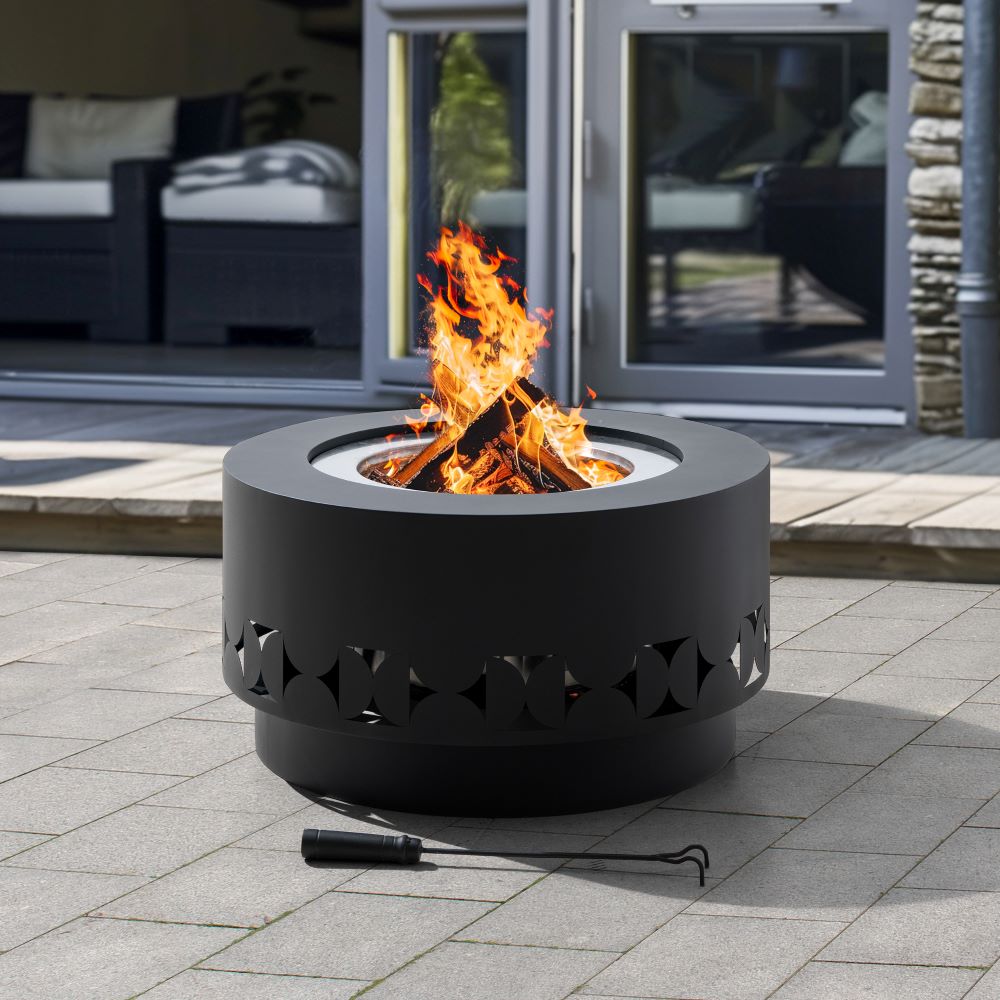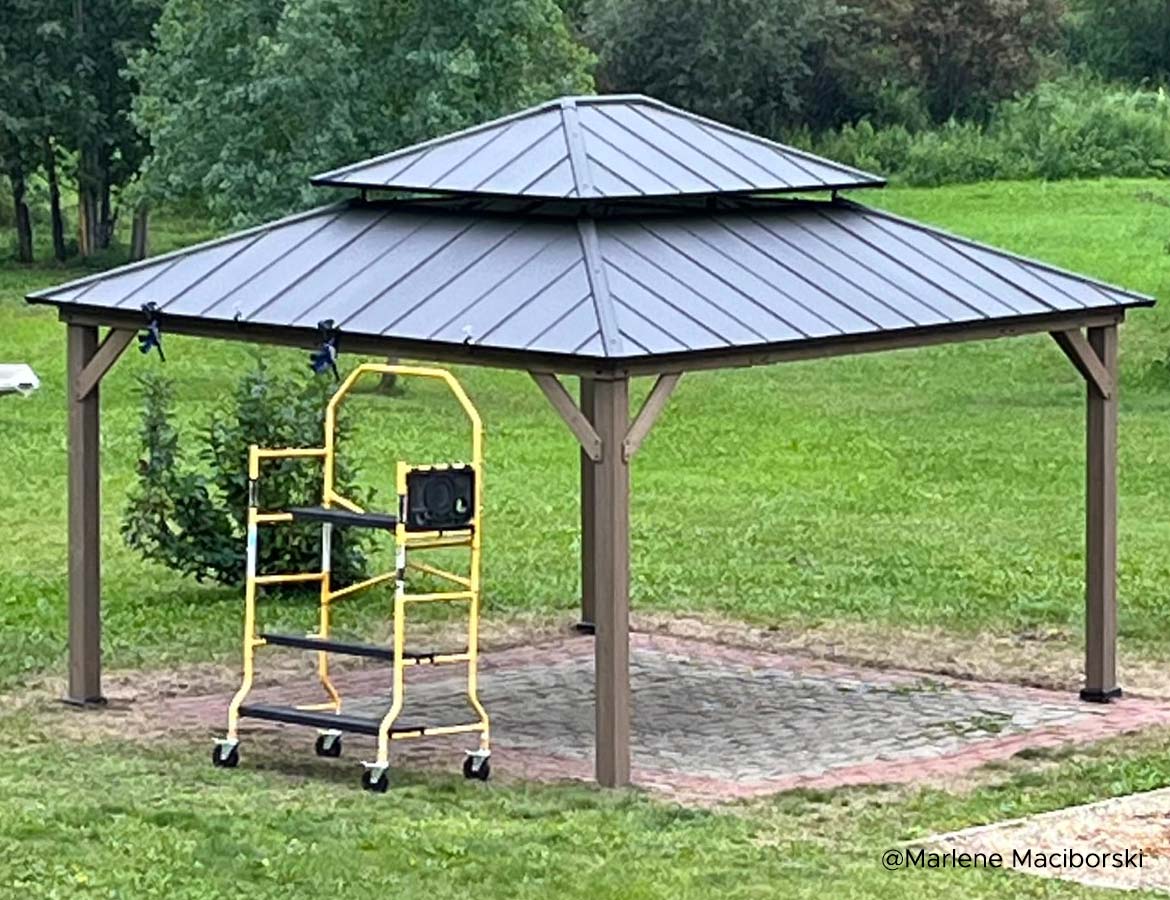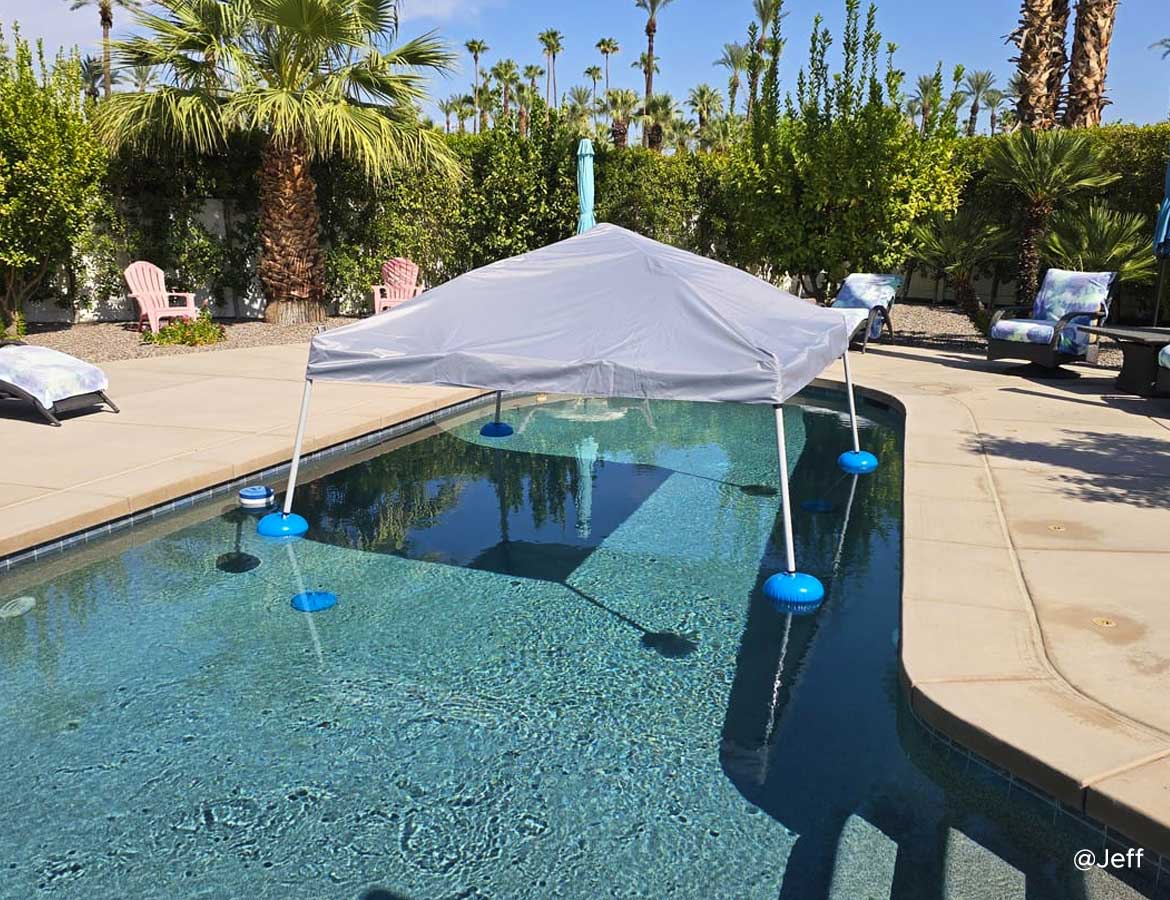A wood gazebo is a beautiful centerpiece in any backyard—adding charm, functionality, and a cozy space to entertain, relax, or dine outdoors. But as with any outdoor structure, a wooden gazebo can accumulate dirt, mildew, algae, pollen, and weather-related grime. This leads many homeowners to ask: Can I pressure-wash my wood gazebo?
The short answer is yes—but with important precautions.
In this article, we’ll explore the right and wrong ways to pressure-wash a wood gazebo, how to protect your structure from damage, and when it’s better to opt for gentler methods. We'll also highlight maintenance tips and premium options like SUNJOY wood gazebo kits to help you protect your investment for years to come.
Why Cleaning Your Wood Gazebo Matters
Cleaning your gazebo isn’t just about keeping it looking sharp—it’s about preventing long-term wear. Dirt and organic buildup can:
Cause wood to rot
Invite pests and mold
Fade wood stain or paint
Compromise structural integrity
Routine cleaning helps you spot early issues and preserve the beauty of your cedar frame gazebo or other wood structure.
Can You Pressure-Wash a Wood Gazebo? Yes, but...
Yes, pressure-washing is an effective way to clean a wood gazebo, but it must be done correctly to avoid damage. Too much pressure or incorrect technique can strip the finish, dent soft wood, or force water deep into seams—leading to future rot.
Use the Right Pressure Settings
Softwoods like pine and cedar (commonly used in wood gazebo kits) require care. Use a pressure washer with the following specs:
PSI: 500 to 1,200 (avoid exceeding 1,500 PSI)
Nozzle: 25-degree or 40-degree tip
Distance: Hold the wand 12–18 inches from the surface
Start on the lowest setting and test in a hidden spot to ensure you're not damaging the wood.
Be Mindful of Angles
Always spray with the grain of the wood and at a slight downward angle to avoid forcing water into cracks or seams. Never aim the spray directly into joints, ceiling panels, or support beams.
Use the Right Cleaning Agents
Mild, wood-safe cleaners work best. Avoid bleach unless heavily diluted. For stubborn stains, opt for eco-friendly wood deck cleaners. Use a brush for deep cleaning corners or trims.
Step-by-Step Guide: How to Pressure-Wash a Wood Gazebo Safely
1. Remove Furniture and Accessories
Clear the space. Remove outdoor cushions, curtains, lighting, and nearby planters or decor.
2. Sweep and Pre-Rinse
Use a broom to remove loose debris. Lightly hose down the surface to soften any grime.
3. Apply Cleaner
Spray a wood-safe cleaner across the structure. Let it sit for 5–10 minutes.
4. Pressure-Wash Carefully
Use your pressure washer with appropriate settings. Work from top to bottom in sections.
5. Let Dry and Inspect
Allow 24–48 hours for full drying. Check for any wood fuzzing, splintering, or areas that need sanding.
6. Reseal or Restain If Needed
After washing, consider reapplying wood sealant or stain to maintain protection from the elements.
When Not to Pressure-Wash
Avoid pressure-washing if:
The gazebo is older and showing signs of dry rot
You’ve already applied a fresh coat of stain or sealant
It’s made of untreated softwood without a water-resistant finish
In these cases, stick to gentle cleaning methods like hand-scrubbing with a soft-bristle brush and soapy water.
Best Wood Types for Pressure-Washing
Some woods hold up better to pressure than others:
Cedar: Naturally weather-resistant; ideal for light pressure-washing
Redwood: Dense and durable, though expensive
Treated Pine: Economical but may show wear under high pressure
SUNJOY cedar gazebos use high-quality, naturally decay-resistant materials that respond well to gentle pressure cleaning when needed.
Alternative Cleaning Methods for Delicate Wood
Not sure about using a pressure washer? Try these safer alternatives:
Soft wash system: Uses lower pressure and gentle cleaners
Vinegar and water solution: Great for removing mildew
Deck brush and wood soap: Manual scrubbing is time-consuming but safe
These methods are ideal for regular upkeep between deep cleans.
How Often Should You Clean a Wood Gazebo?
General maintenance goes a long way. Here’s a quick breakdown:
Light cleaning: Every 1–2 months
Deep cleaning (including pressure-washing): Once or twice a year
Sealant or stain application: Every 1–3 years depending on exposure
Staying ahead of grime buildup will reduce the need for aggressive cleaning and help your gazebo age beautifully.
Upgrade with Low-Maintenance SUNJOY Wood Gazebos
If you’re starting fresh or upgrading, consider SUNJOY wood gazebo kits. Their cedar frame gazebos are:
Pre-stained or sealed to resist mildew and weather
Designed with smart water drainage systems
Easy to assemble with detailed instructions
Plus, SUNJOY offers optional add-ons like mosquito netting, and privacy curtains that can be easily removed before cleaning.
These gazebos are not only durable but also beautiful enough to boost your home’s property value.
Final Thoughts: Yes, But Do It Right
So, can you pressure-wash your wood gazebo? Yes—with care. Follow proper PSI settings, use wood-friendly cleaning solutions, and take the time to reseal your wood after washing.
Better still, start with a gazebo built for longevity, like those from SUNJOY. Their thoughtfully engineered wood gazebo kits provide both functionality and style with easier upkeep over time.
By cleaning smart and maintaining your structure regularly, your wooden gazebo will remain a stunning centerpiece in your outdoor space for many years to come.






Leave a comment
All comments are moderated before being published.
This site is protected by hCaptcha and the hCaptcha Privacy Policy and Terms of Service apply.